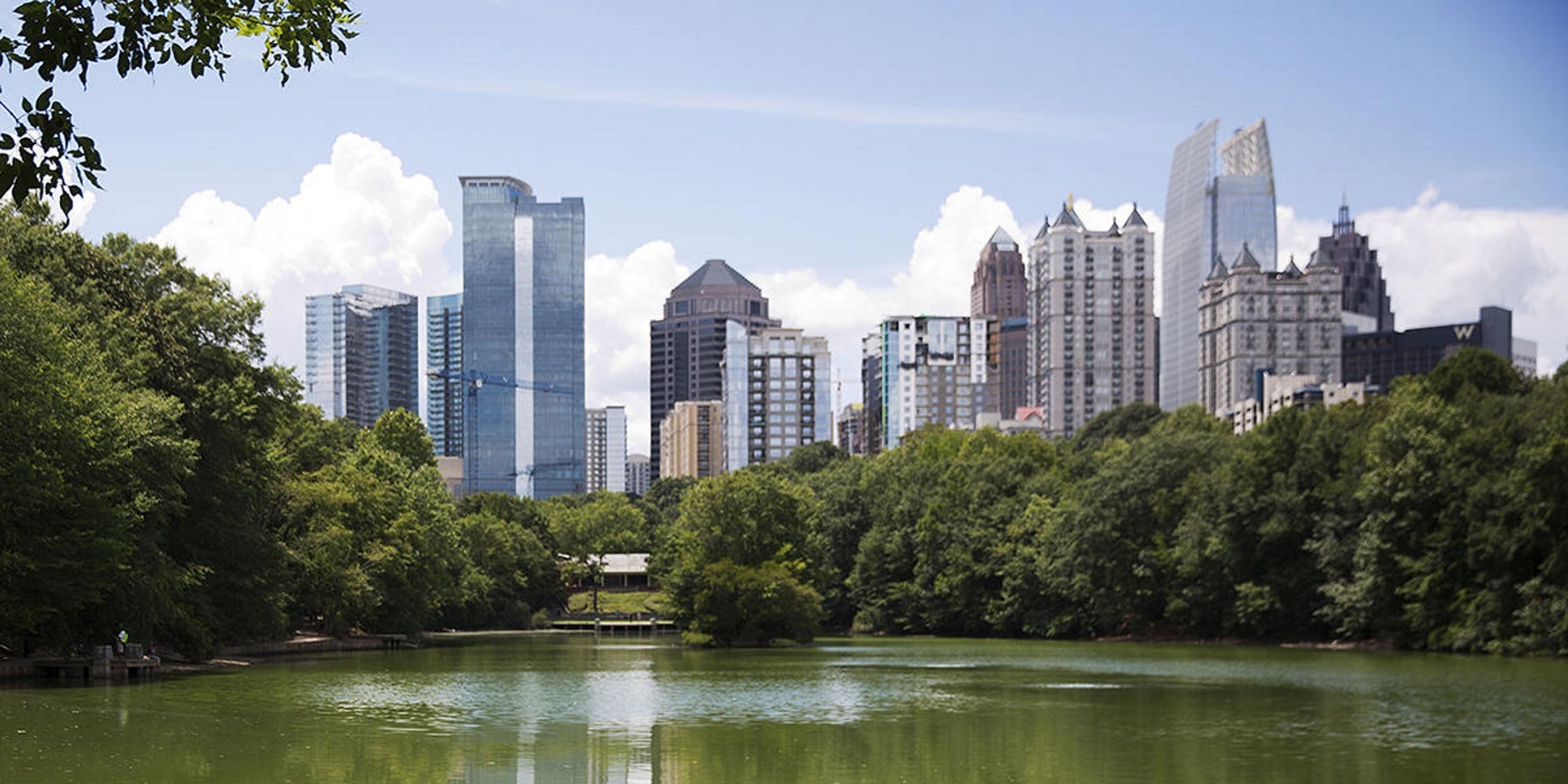Atlanta City Council To Consider Extending Clean Energy Plan Timeline

Last year, the Atlanta City Council set a goal to convert the city to 100 percent clean energy by 2035. A new timeline under consideration would make it 2050.
David Goldman / Associated Press file
Tuesday morning, the Atlanta City Council Utilities Committee will consider whether to extend its clean energy plan deadline.
Last year, the council set an ambitious goal: convert Atlanta to 100 percent clean energy by 2035. This new timeline would make it 2050. There is also a smaller goal of getting all the city municipal operations on clean energy by 2025, which the new proposal would change to 2035.
Stephanie Stuckey, the city’s former chief resilience officer, drafted the plan. She said the city has two options: buying renewable energy credits immediately or building more local clean energy production.
Atlanta could meet that first deadline, Stuckey said, it would just be expensive.
“If we want to meet the original deadline, we’re looking at purchasing renewable energy credits from outside the state of Georgia, and we’re looking at a price tag of in the $10-20 million range,” she said.
Stuckey says with “a modest extension,” Atlanta would have a chance to invest in local renewable energy production like solar panels.
“To transition to this 100 percent goal, we ideally want as much renewable energy that’s actually in the city of Atlanta, and so they need to give us more time to develop a more robust local market.”
Currently, she said, just 6 percent of Atlanta’s energy comes from renewable sources, including hydropower.
Ted Terry is mayor of Clarkston and runs the Georgia Chapter of the Sierra Club. He agreed the extension is more realistic.
“I think the reality is that we live in Georgia, and the regulatory environment, whether at the Public Service Commission or the Legislature, is very inhibiting for clean energy.”
Terry said, therefore, it will take time to work with state officials, the Legislature and Georgia Power to build more local clean energy options, like solar panels. He said this extension also tracks with the Sierra Club’s national goal for cities to convert to clean energy by 2050.
Ultimately, Stuckey said, it’s up to the council members to decide what they think is best.








